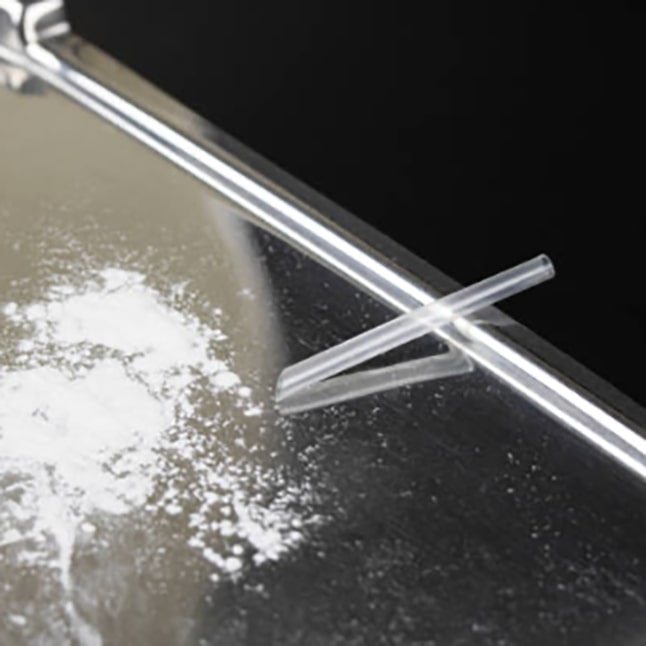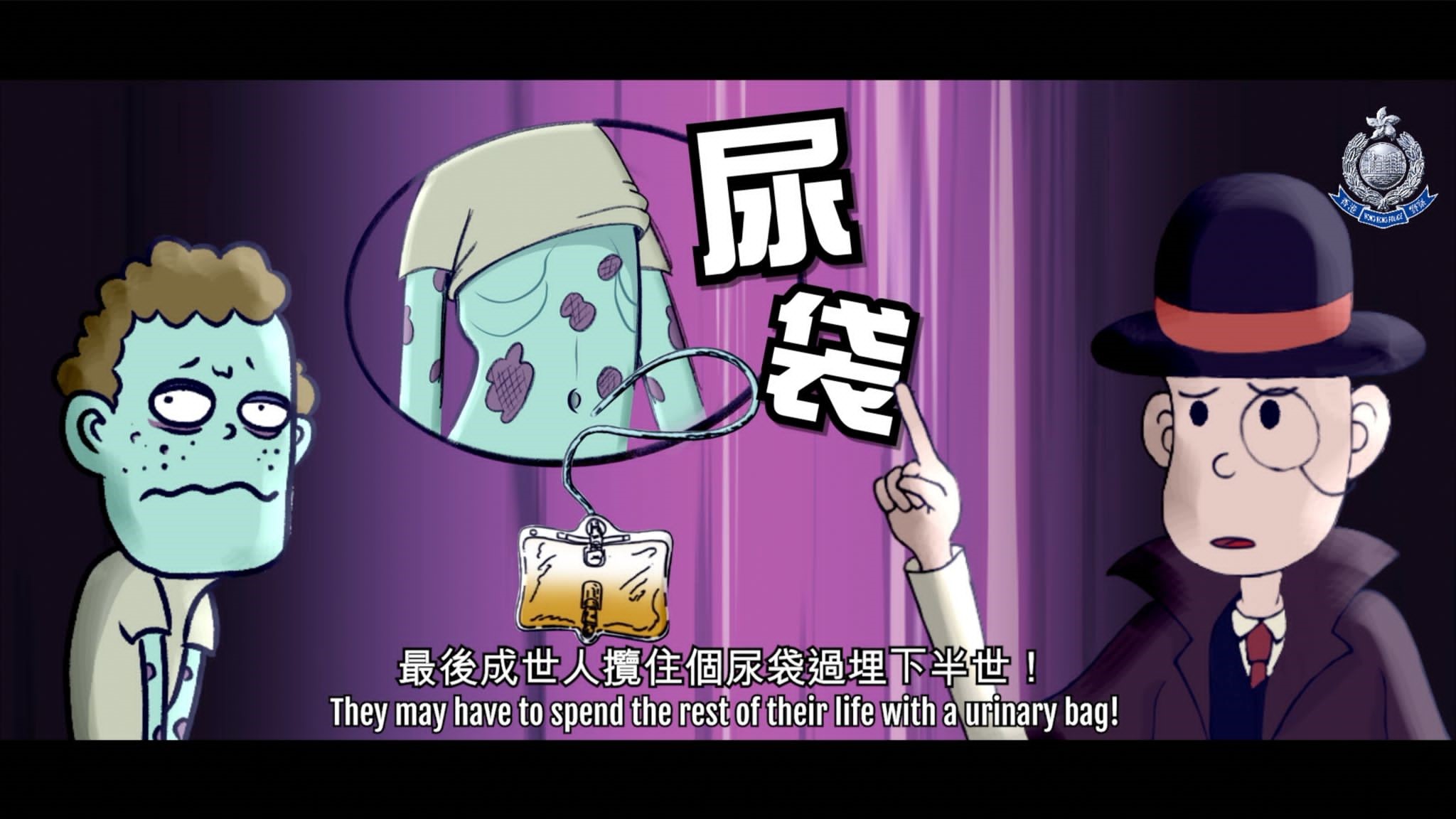Ketamine
Ketamine

- Ketamine is a central nervous system depressant.
- It can generate a “dissociate” effect, which means that the person taking it feels as if the mind is “separate” from the body.
- Normally the duration will be no more than a few hours. It also blocks normal thinking and most sensory input and brings on temporary memory loss.
- Ketamine is commonly abused by snorting ketamine powder, or by taking tablets containing ketamine.
- Street Name:“Special K”, “K”, “Kit Kat”, “Vitamin K”, “Jet” etc.
API & TV Programme
Adverse Effects of Ketamine Use
- Slurred speech
- Sedative-hypnosis
- Analgesic effect
- Hallucination
- Drowsiness
- Nausea
- Depression
- Impaired long-term memory and cognitive difficulties
- Deficiency in motor co-ordination and impairment in executive function
- Uterine damage / contraction
- Impaired motor function
- Respiratory/heart problems
- Tolerance/physiological and psychological dependence
Having hallucinations and the feelings of invulnerability, abusers may unknowingly injure themselves due to anaesthetic and analgesic effects of the drug. It also lowers the heart rate and so with larger doses it can lead to oxygen starvation to the brain and muscles. Uterine damage / contraction is common for abusers of ketamine, sabotaging their normal life as they have to go to washroom often. Some abusers can even hardly make a 15-minute journey on vehicles, thereby sabotaging their normal life. Overdose of ketamine can result in unconsciousness and depressed circulatory and respiratory systems, sometimes causing death.
- Ketamine is a dangerous drug controlled under the Dangerous Drugs Ordinance.
- It is an offence to illegally produce, possess or supply ketamine.


